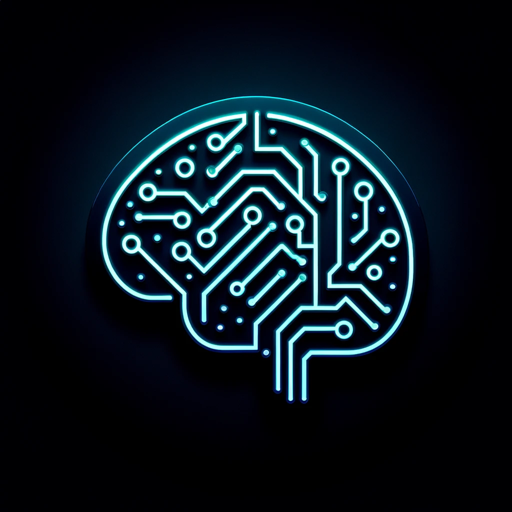Theory of Computation-theory of computation guide
AI-powered computational theory assistant.
Explain the Turing machine.
What is P vs NP?
Describe automata theory.
How does computational complexity work?
Related Tools
Load More
Computer Science GPT
Expert in computer science

Theoretical Computer Science Expert
Solves tasks first, then explains in simple language, with video resources.

Automata Expert
Expert in finite automata, regex, and NFA/DFA conversions.

Automata Theory Tutor
Expert in Automata, using a textbook reference for teaching.

Algorithms
Specializes in theoretical aspects of algorithms, offers in-depth guidance.

TOC Turing Machine aaa*b
Tool to solve Turing Machine problems
20.0 / 5 (200 votes)
Introduction to Theory of Computation
The Theory of Computation is a branch of computer science that deals with how efficiently problems can be solved on a model of computation using an algorithm. It focuses on understanding the fundamental capabilities and limitations of computers by studying abstract machines, algorithms, and their complexity. The field is broadly divided into three areas: automata theory, computability theory, and complexity theory. Automata theory examines different computational models like finite automata, pushdown automata, and Turing machines to understand the computational processes. For instance, finite automata are used to design digital circuits and lexical analyzers in compilers. Computability theory explores which problems can be solved by computers. It defines the limits of what computers can achieve, famously characterized by problems like the Halting Problem, which proves that there are certain tasks that no computer program can accomplish. Complexity theory studies the efficiency of algorithms in terms of time and space, categorized into complexity classes such as P, NP, and NP-complete. For example, it helps in determining whether certain problems, like the Traveling Salesman Problem, can be solved in polynomial time or if they inherently require exponential time.

Main Functions of Theory of Computation
Automata Theory
Example
Designing lexical analyzers in compilers
Scenario
A lexical analyzer, part of a compiler, uses finite automata to scan the source code and categorize substrings into tokens. This process is crucial in the syntax analysis phase of compilation.
Computability Theory
Example
Understanding the limits of algorithms
Scenario
In determining the decidability of problems, computability theory shows that certain problems, such as the Halting Problem, cannot be solved by any algorithm, guiding researchers in focusing on solvable problems.
Complexity Theory
Example
Classifying problems into complexity classes
Scenario
By categorizing the Traveling Salesman Problem as NP-hard, complexity theory helps in recognizing that unless P=NP, there is no efficient algorithm to solve this problem for all possible cases, impacting fields like logistics and operations research.
Ideal Users of Theory of Computation Services
Computer Science Students and Researchers
These individuals benefit from understanding the theoretical foundations of computation, which enhances their ability to design efficient algorithms, develop new computational models, and advance the field through research. Knowledge in automata, computability, and complexity helps them tackle both theoretical and practical challenges in computing.
Software Developers and Engineers
Professionals in this group apply principles from the Theory of Computation to optimize software performance, ensure algorithmic correctness, and solve complex computational problems. Understanding computational limits and efficiency enables them to create more robust and efficient software systems.

Guidelines for Using Theory of Computation
Visit aichatonline.org for a free trial without login, no need for ChatGPT Plus.
Begin by accessing the free trial available at aichatonline.org. This trial does not require any login or subscription to ChatGPT Plus, making it easily accessible for initial use.
Familiarize yourself with basic concepts.
Ensure you have a fundamental understanding of key concepts in Theory of Computation, such as automata, formal languages, computability, and complexity theory. This background knowledge will help you utilize the tool more effectively.
Define your specific use case.
Determine whether you need help with academic research, problem-solving, understanding theoretical concepts, or preparing for exams. Clarifying your objective will guide your interactions with the tool.
Engage with the tool interactively.
Ask detailed questions and provide context for your queries. The more specific you are, the better the tool can assist you in providing comprehensive and accurate responses.
Review and apply the insights.
Take time to review the information provided by the tool. Apply the insights to your work, whether it’s solving computational problems, writing academic papers, or studying for exams. Utilize the feedback for continuous learning and improvement.
Try other advanced and practical GPTs
Music Theory
AI-powered music theory insights

Graph Theory
AI-powered Graph Theory Analysis and Visualization

Romance Novel Crafter
Craft captivating romance with AI

git hivemind
AI-powered Git management made easy

GlucoseTracker
AI-powered tool for glucose stability

Steamy Stories Generator
AI-Powered Personalized Narrative Creator

Algebraic Number Theory GPT
AI-powered tool for algebraic number theory solutions.

Game Theory
AI-powered tool for strategic analysis.

DnD Magic Item Generator
AI-powered Magic Item Generator for D&D

Meeting Summary and Action Item Specialist
AI-powered tool for summarizing meetings and identifying action items.

Expand Text
Expand Your Ideas with AI-Powered Precision.

T Shirt Niche Idea Expander
Unleash AI-powered creativity for unique t-shirt designs.

- Research
- Problem Solving
- Learning
- Exam Prep
- Teaching
Q&A on Theory of Computation
What is the Theory of Computation?
The Theory of Computation is a branch of computer science that deals with how efficiently problems can be solved on a model of computation using algorithms. It encompasses the study of automata, formal languages, computability, and computational complexity.
How can the Theory of Computation be applied in real-world scenarios?
It is used to design and analyze algorithms, improve computational efficiency, and understand the limitations of various computational models. Applications include optimizing search engines, cryptographic systems, and automated verification systems.
What are automata and formal languages?
Automata are abstract machines that recognize patterns within input data, and formal languages are sets of strings over an alphabet. Automata theory helps in the design of parsers and compilers, essential components of programming languages.
What is computational complexity?
Computational complexity theory studies the resources required to solve a problem, such as time and space. It categorizes problems based on their inherent difficulty and helps in identifying feasible solutions for practical use.
Can Theory of Computation help with NP-Complete problems?
Yes, it provides a framework to understand NP-Complete problems, which are problems for which no efficient solution algorithm is known. Researchers use this theory to explore approximate solutions and heuristics for these challenging problems.